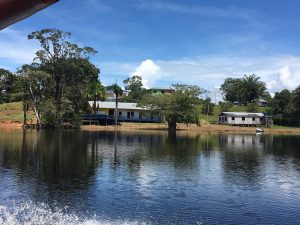Brazil faces chronic energy shortages, particularly in remote riverside communities in the Amazon where a lack of infrastructure, expertise and financial input reduces the ability for communities to meet those demands. The government’s rural electrification programme, known as Luz Para Todos (Light for All) created in 2003. Luz Para Todos aims to provide energy access to all through mini-grids and stand-alone systems, to be supplied by renewables, diesel and/or hybrid systems for remote communities in which grid connection is not a viable option.

The aim of the STAR project is to design, implement and monitor a pilot low-carbon based energy solution with a sustainable business model to increase energy security, reduce environmental impact and improve economic and health indicators for one riverside community that can be scaled and replicated in other communities in the Amazon.
The short-medium term impact is the provision of a renewable energy system for both for domestic use (lighting, water treatment, communications, entertainment, etc.) and productive purposes (home businesses and cottage industries) to foster social and economic development in remote Amazon communities. The long-term impact is the scaling and replication of a modular system to other community enabling job creation in the renewable energy sector and increasing social wealth for disadvantaged communities in the Amazon region.
